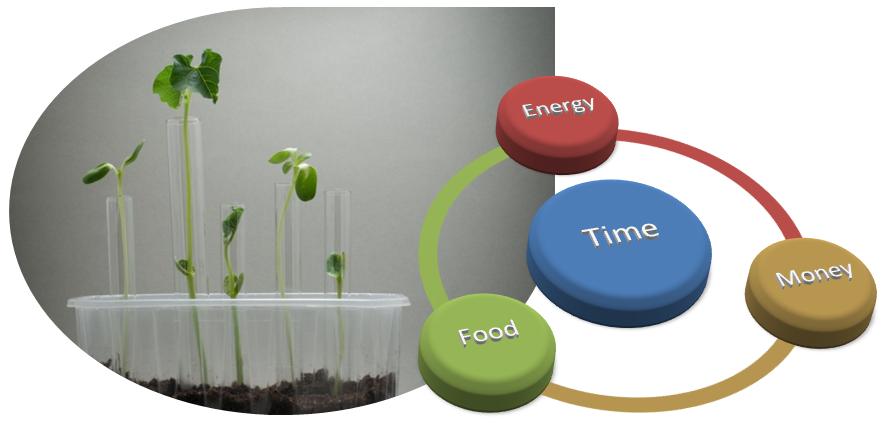
By Prabodh Mistry
All resources are connected
I was recently asked to provide a reference for a colleague applying to be a manager of ‘Use Less Group’ at a world leading academic institution. The group’s mission was to promote a transition towards a more sustainable future in which we use fewer resources. Covid-19 restrictions have allowed me to think more and more about the group and to extrapolate my thoughts to the role of the global group leader.
Leading the ‘Use Less Group’ at the global level will require understanding scientific, technical, commercial, policy developments and international diplomacy to influence the resource consuming systems that surround us. Of these, scientific and technical knowledge would be the easiest to acquire as much is published and often accessed at the click of a button. The internet is serving as a platform that allows greater access to good sources of information, but some sources of misinformation too. It has changed attitude about our environment, ecology and how intertwined they are to our health, security and wellbeing. However changing attitudes is not enough if it does not also lead to a change in behaviour. This seems to be the challenge of the 21st Century. Before tackling this, we need to understand something about our global resource systems and how they are regulated.
Law of Mass Action
In secondary school science (chemistry in particular) we learn to predict behaviour of chemical reactions in solutions. You may recall how the ‘law of mass action’ acts on the system by first resisting slowly and then more strongly the more reactants (or stresses) are added. This resistance is in the opposite direction to the intended reaction. All systems, whether natural or human made, behave in this manner. When stressed, their performance deteriorate with time and gradually move to another equilibrium which may be less favourable.
The British scientist James Lovelock, in his Gaia hypothesis, has explained the Earth as a self-regulating system. The high degree of urbanisation and centralisation of production have met our social and economic needs but at the expense of the environment and ecology. This has led to systems based on biochemical, environmental and ecological factors creating a perfect storm from decades of stress imposed on them by human activity. The inherent regulation in each system fights back when under threat. Global warming is nothing but the self-regulation and fires, hurricanes and floods are moving it to a new equilibrium. Ecological shift in favour of human needs have come at the expense of exploiting and consuming wildlife and covid-19 can be seen as part of this system regulation that is fighting back. So how can we relieve such stress and where do we begin?
Personalisation
I grew up when my father was working overseas. My mother taught me and my siblings good values and sometimes held up a rolling pin to discipline us. She never used it but we understood the threat was always credible. Even to this day the rolling pin is used widely in our home – to roll pastries and chapatis but also to squeeze every last drop of toothpaste out of the tube! When the bathroom soap gets too thin to handle, it gets stuck onto the new soap, to use it fully; there are many other examples. Such habits of using less but using to the full extent possible has stayed with me my entire life.
The starting point of any use less strategy must be at the lowest level of control – the individual. But how can we begin to consume less when the shortage is gradual and when we find it difficult to integrate our actions and behaviour to attitude? For individuals, conservation of resources can come about in two ways:
- External threat (imposed ethics or extrinsic values) – from shortage or threat to supply.
- Internal motivation (intrinsic values) – from person’s inherent principles such as self-austerity that may be driven by personal integrity or compassion.
Externally imposed ethics to use less water, energy or resources are only effective if there is policing, a threat of fine or social pressures. The second option, based on motivation from within, is more sustainable but hard to spread the practice widely, its benefit is longer lasting and arguably more sustainable for the individual, community and globally.
This was in fact a theme of talks given by the Chancellor of SSS Institute of Higher Learning (Puttaparthi, India) in 1983, which he called ‘Ceiling on Desires’. He focused on intrinsic values and explained that happiness lies not in fulfilment of desires, but in controlling them. We should focus on efficient use of food, energy and money which relate to each other and time. These talks have left lasting impressions on me as they resonated with what my mother taught in practice.
Nationalisation
Covid-19 has made personal and community health a high priority and encouraged social distancing, traveling less and sticking to more immediate family units. At the family level, there has been significant disruption to many things we have come to take for granted. It is easy to get used to consuming more, living more luxuriously and with greater convenience but this inevitably leads to more wasteful behaviours which make it harder to conserve. The covid-19 pandemic has enabled us to learn to have fewer journeys to work and hold official meetings from the comfort of the office or even home, drive less, print less, take functional exercises and avoid eating out by cooking at home. Some have even turned to growing own vegetables at home. Using the car less has meant fewer accidents and better air quality for all.
Projects that bring communities closer virtually, reduce waste, encourage re-use and enable recycling and upcycling are also coming together to create a platform for re-use of clothes, toys and accessories. Such platforms already exist for musical instruments, books, home appliances, expensive women’s wear and travel accessories. We have known such initiatives but covid-19 is giving it a renewed impetus.
Environmental impacts from goods or food production stem from the use of natural resources (e.g. soil, air and water), chemicals and energy which are linked to greenhouse gas emissions. Our current production of meat and dairy products is very wasteful and puts enormous pressure on the world’s resources and animal welfare. Adopting a more sustainable diet is highly advisable and this means more vegetables while reducing meat consumption.
The UK Government has set very tough targets based on GHG emissions but these targets are related to direct emission from UK productions only; the average carbon footprint of the British people goes on rising, due to the import of high carbon products (made higher by air, land or sea transport) into the UK. In carbon terms we are living beyond our means. We can restore community and national pride while promoting conservation of internationally traded goods and thereby leading to lasting economic growth for the locality and the country.
Internationalisation
We all know that global dominance of humans is creating destruction of the environment and ecology. Global population and the inequities are tearing communities apart. We do not have any ethical or intrinsic values that will allow us to address population control, so we must focus on education and equitable trade to address inequities within communities and between countries.
We use cosmetics with ingredients grown on recovered land from forests and have a throw away culture with fast fashion. I believe fast fashion has been on a runaway track but covid-19 may have slowed it considerably as we are changing the way we shop but also become thrifty due to reduced cash flow. As in any system, when the normal becomes difficult it is time for a new normal, which is where we should focus on use less strategies.
It is hard to make companies switch to reusable products if they currently have a profitable model for selling single-use products. Deodorant market alone is worth £60 billion worldwide. There are many examples of brands that are sold as ‘refillable’ but are rarely refilled. The elements needed to create reusable models already exist, what is needed is to make them easy and desirable for consumers to make the switch. There is a role for the international community and bodies such as the United Nations to work with governments to incentivise good practice and tax the single-use products.
In Summary
There must be a limit to our individual and collective consumption. Most of us are convinced about the benefits that lie in minimising resource use at individual, community and global levels. Widespread education and access to the internet has successfully given us the right knowledge but it is the divorce between our knowledge, thought and actions which is the root cause of environmental degradation and climate change.
Desires and willpower both emerge from thoughts. Only the willpower will lead one to a healthy and happy life or it can ruin the person and affect the family and community. We must move towards lifestyles that sit comfortably alongside our intrinsic values if we are to protect the environment and all systems that depend on it.
About the Author

Dr Prabodh Mistry (prabodh.mistry@ehv-engineering.com) is a Fellow of the Institution of Chemical Engineers and a Director of Economic & Human Value Engineering Ltd, a consultancy company. He has developed a model based on human values which is being considered in AI systems and cognitive psychology.





